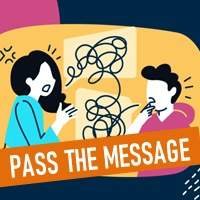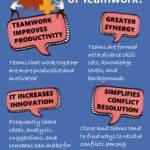
Play Act and Pass the Message
Pass the message is a communication activity and a hilarious combination of the game of telephone and charades.
Prepare clues for the game by writing them on slips of paper. Clues can be situations (e.g. “Become the President of the World”) or silly things (e.g. “dancing Gangnam Style”).
Form teams of 6 people, if the group is small you can do this activity with a single team. Arrange each team by having all members line up and face the same direction (all members facing to the left, for instance).
Show the clue to be acted out to only the last person in the line — let’s call him “Person A”. Person A taps the shoulder of the next person in line (Person B), and Person B turns around to watch. The first person (Person A) must act out the clue (without speaking or making any noises) to the next person in line (Person B).
Next, Person B taps on Person C’s shoulder and after he turns around, acts out what he or she thinks is the clue to Person C. It’s possible that the message gets warped or ruined along the way — but this simply makes the game funnier.
Once the acting goes down the line to the last person, the last person must guess what the original clue was. If the team was successful in guessing the clue, the team gets a point.
If there are multiple teams, the first team to correctly guess the same clue wins. Play several rounds of games with different prompts to see how teams do with nonverbal communication.
Moment of Reflection
- What did you think when you first learned that you had to rely on your acting skills to communicate a message?
- Did your non-verbal communication skills improve as the rounds of the game progressed?
- Did your group develop strategies that helped you be more successful in the different rounds?
- What were the most effective strategies to communicate each message?
- Describes a message that was totally misunderstood. In your daily life, have you ever misinterpreted a message?
The topics of this publication: non-verbal communication, interactions, integration, teamwork, observation skills, creativity, adaptation, improvise, adaptability skills


